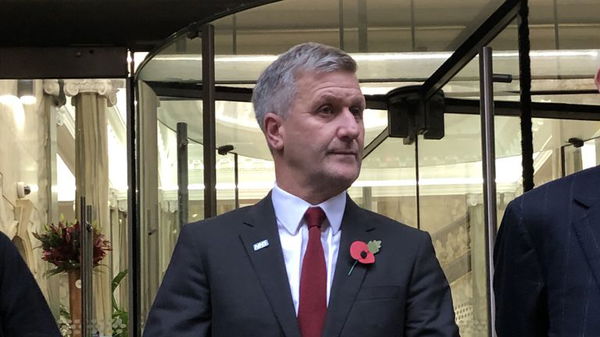

If you are a cycling enthusiast, then there’s a startling piece of news for you. Brace yourselves for the story of Richard Freeman, a name that once epitomized medical support for British Cycling and Team Sky during their golden era. But hold on tight, because this story takes an unexpected turn down the path of anti-doping breaches and astonishing revelations.
Anti-doping rules violation and aftermath
Can you imagine a key figure in the healthcare wing of British Cycling and Team Sky, facing a four-year ban from all sports? That’s the bombshell dropped by the National Anti-Doping Panel (NADP) in the UK, leaving the world of cycling shaken.
ADVERTISEMENT
Article continues below this ad
You might remember Richard Freeman as the man who stood on the medical frontline when British cycling was at its zenith. Freeman, once entrusted with the health of the elite cyclists, was found guilty of ordering 30 sachets of banned testosterone gel back in 2011.
That’s right, a medical professional directly involved with sports excellence was caught in the crosshairs of anti-doping rule violations. The allegations revolve around “possession of a prohibited substance” and “tampering,” offenses that cut right to the core of fair play and integrity in sports.
Once hailed for his contributions to British Cycling’s triumphs, Freeman now stands at the precipice of a four-year ban. The UK Anti-Doping (UKAD) provisionally suspended him in 2020, and the hammer came down on his actions on December 22, 2020. The independent NADP ruled that Freeman had committed multiple violations that shattered the very principles he was meant to uphold.
The verdict didn’t come lightly. Jane Rumble, the CEO of UKAD, minced no words: “The decision… confirms that Richard Freeman broke the UK Anti-Doping rules.” Freeman’s actions tarnish not just his own reputation, but also the ideals of integrity that sports hold dear.
Former British Cycling and Team Sky doctor Richard Freeman receives ban from sport for Anti-Doping Rule Violations, Possession of a Prohibited Substance and Tampering.
Read More ➡️ https://t.co/sb9DLtLG9P pic.twitter.com/29c8C0gHWi
— UK Anti-Doping (@ukantidoping) August 15, 2023
Watch this story: 68-Year-Old Bicyclist Tragically Killed In California Vehicle Collision
A dark stain on a glorious cycling era
This saga has cast a dark shadow over an era that witnessed British Cycling’s unparalleled dominance. As the chief doctor for Team Sky during the 2012 and 2016 Olympics, Freeman’s involvement with cycling’s brightest stars makes this scandal even more shocking.
ADVERTISEMENT
Article continues below this ad
But wait, there’s more to this intricate web of deception. According to Sky News, Freeman has claimed that he purchased the testosterone gel for another individual – an unnamed “non-rider”. UKAD’s investigations exposed the cracks in this narrative. Consequently, they revealed that the gel was not returned for destruction as claimed.
This case speaks volumes about the integrity of sports and the responsibility borne by all support personnel. The stringent rules exist to maintain a clean, fair environment for athletes to compete in. Freeman’s actions serve as a stark warning that no one is above these rules, a message reiterated by UKAD’s CEO: “This case sends a strong message… to uphold the values of integrity in sport.”
Amid Freeman’s claims and the subsequent debunking, the legacy he leaves behind is one of shattered trust. His actions have ignited debates around the sport of cycling. British Cycling’s chair, Frank Slevin, lamented Freeman’s conduct fell far from the high standards expected. And indeed, the fall from grace is resounding, as a once-respected figure finds his reputation tarnished.
ADVERTISEMENT
Article continues below this ad
As Freeman serves his four-year ban, the sporting world reflects on this shocking revelation. But before ending this story we must ask you. How does this revelation impact your view of fair play and ethics in sports? Can the actions of one individual tarnish the image of an entire era? Share your thoughts!
ADVERTISEMENT
ADVERTISEMENT
ADVERTISEMENT
ADVERTISEMENT

